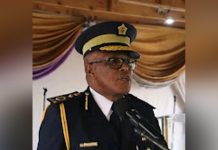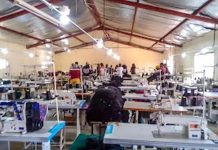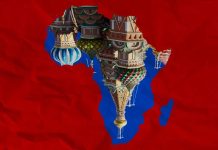Africa-Press – Lesotho. In the weeks leading up to this year’s United Nations General Assembly, the annual gathering of Presidents and Prime Ministers, some African leaders were reportedly unsure whether the flight across the Atlantic would be worth their while.
A hesitance on the part of the continent’s leaders to engage with the world’s prime diplomatic forum would be worrying at any time. But now more than ever, Africa’s voice needs to be clearly heard.
Sharpening tensions between east and west have once again brought into focus Africa’s unique position as the continent that stands apart from global dichotomies.
\The conflict in Ukraine has provided only the most recent manifestation of a decades-long policy of African leaders exercising their own geopolitical judgement on behalf of their peoples. Many African states have aligned themselves with neither the NATO position, nor the Russian.
For example, when the UN Security Council called for a vote to condemn the actions of Russia, only 28 African countries out of 54 voted in favour of the resolution, 17 countries abstained, one voted against the resolution, and 8 countries were not present.
This should not have come as a surprise. During the Cold War, as the eastern and western blocs faced off across the Iron Curtain, a third international grouping took a different approach.
The Non-Aligned Movement, which contained every African nation except apartheid South Africa, was not formally aligned with (or against) any major-power bloc.
That legacy abides. Today’s leaders feel no compulsion to ‘pick a side’. They may believe that this can give them the freedom to offer innovative solutions to seemingly intractable problems. However, not belonging by default to one camp or another does not in itself constitute a geopolitical strategy.
The question that Africa’s leaders face at this critical juncture in global politics is what principles should underpin their independent engagement in global affairs – whether at the United Nations or in other global fora.
To make a real difference, that collective voice must be three things: unified, distinctive, and consistent. Unified, because a boat moves forward faster the more rowers are pulling in the same direction.
Just as Africa’s voice during the Cold War was magnified through the continent-wide membership to the Non-Aligned Movement, so today our calls for vaccine equality and meaningful climate action will be stronger if they are built on unity of purpose.
Distinctive, because there is no point in going to UNGA, or any other international forum, simply to make up the numbers. Leaders must have something to say, roll the pitch in advance, and make the case in a resonant way.
We saw this last year at COP26 in Glasgow, where the united call for improved access to climate finance for developing countries was reflected in the final text of the agreement. And finally, consistent.
In every global forum – from the UN and WHO to World Bank and the WTO, powerful advocacy of the African angle – indeed the African angles – must become an intrinsic part of the debate.
You earn the right to be heard and listened to by turning up, taking a position, arguing for it clearly and compellingly – and creating mechanisms that make pledges a reality.
After major summits, pledges are always made but more attention should now be paid to implementation mechanisms, as opposed to promises made or funds pledged.
Promises made to Africa are often not kept and engagement by governments needs to ensure that delivery on them is part of the deal. UNGA provides an annual opportunity, which a consistent approach would amplify.
Issues such as the shortage of fertiliser which threatens next year’s harvests worldwide, equitable production and distribution of COVID and other vaccines and the need to skill up the enormous number of young people seeking gainful employment across Africa and elsewhere are crying out for an assertive and united voice.
A major opportunity for that voice to make itself heard will come later this year, when COP27 is held on African soil and the host continent’s perspective on climate change has a chance to take centre stage. However, the onus is not solely on governments when it comes to engaging to tackle the great issues facing Africa.
At the recent African Adaptation Summit in Rotterdam, held in preparation for COP27, AU President Macky Sall expressed his disappointment at the absence of some industrial leaders, especially from the European private sector, saying, “They are the main polluters on this planet, and they are the ones who should be financing these changes.
” At the end of UNGA, a tally of those leaders who attended, and those who did not make the trip, will tell its own story. Presence may not guarantee you a hearing, but absence means you cannot complain if you are ignored.
For More News And Analysis About Lesotho Follow Africa-Press






